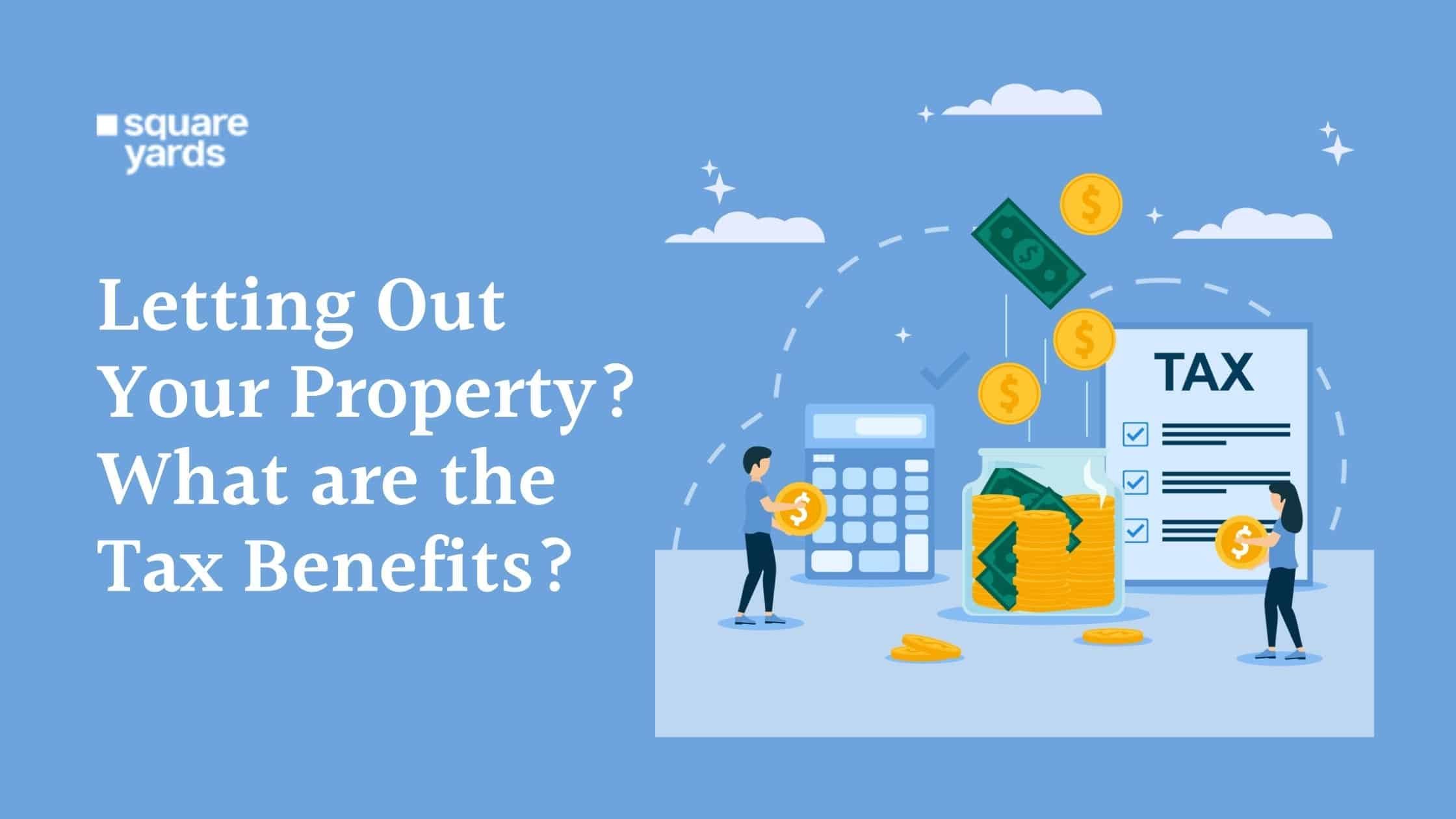Are you letting out your property for earning rental income? Here is a brief glimpse into the tax benefits that you can expect in this regard.
There are a few income tax benefits that you can get once you let out your property. Hence, you should calculate your taxes carefully while filing your ITR (income tax return). The gross income from rentals in a financial year is the total annual rental amount subtracted from the municipal tax payments in that period. Alongside, the owner of the property also holds eligibility for a standard deduction of 30% on the gross rental income amount as well.
Table of contents
Experts state that total annual rentals will not be taken as the owner’s rental income. The gross income from rentals of the owner will be the net rental amount subtracted from total municipal tax payments.
Deduction 1- Standard Deduction (up to 30%)
Be aware that owners of properties may claim up to 30% as standard deduction on the gross rental income. It may be claimed for property maintenance and renovation. Experts state that owners will have to furnish vouchers for proving their costs of home maintenance or expenditure while filing their ITR and claiming standard deduction of 30%. If the owner has a loan for house loan/repair, then the repayment amount may be claimed as a standard deduction as well. Yet, the maximum amount is always restricted to 30% of the gross rental income.
Some of the costs which are deductible include insurance premiums, commissions, advertising, maintenance and cleaning. Depreciation, interest costs, management costs, professional costs, local property taxes, equipment rental, rentals paid to other people for services, pest control, supplies and facilities, repairs, trash removal costs, utilities, etc. You should make sure that you have all the vouchers ready for expenses on these heads. However, remember that you cannot surpass 30% of the gross annual rental income from the property.
Deduction 2- Home Loan Interest
If you have purchased the property on a home loan and are repaying the interest and principal components through your EMIs, then you can claim the interest repayment in the year under Section 24. For a property that is let out, you can claim the entire amount that is paid as interest. This helps you get handsome savings in the bargain. Section 80 EEA may enable an extra tax deduction up to Rs. 1.5 lakh for interest paid on the property.
The gross rental income is only taken into consideration for the tax on the rent that you receive, i.e. meaning that if the owner does not get some portion of it in the year, then he or she may claim a deduction of that amount in question. If a property is rented for less than 14 days, then owners may subtract that amount from the gross annual value generated by the property. At the same time, regarding taxation on the security deposit, it should be noted that if the owner will return the same, then it will not be taxed in his or her hands. If the owner will not return the deposit, then it will be considered in the form of taxable income.
Hence, as can be seen, letting out a property is a great way to earn rental income and you can now get tax deductions on the same as well. Taking a loan to buy the property will get you sizable interest repayment deductions while you can also offset your costs on maintenance, repairs and other administrative expenditure as mentioned above. Investing in residential or commercial property for rental income is a good move in the current scenario, especially to build another asset for the family while future-proofing your family finances in the long run. It can also be a good post-retirement income-earning strategy for investors.





